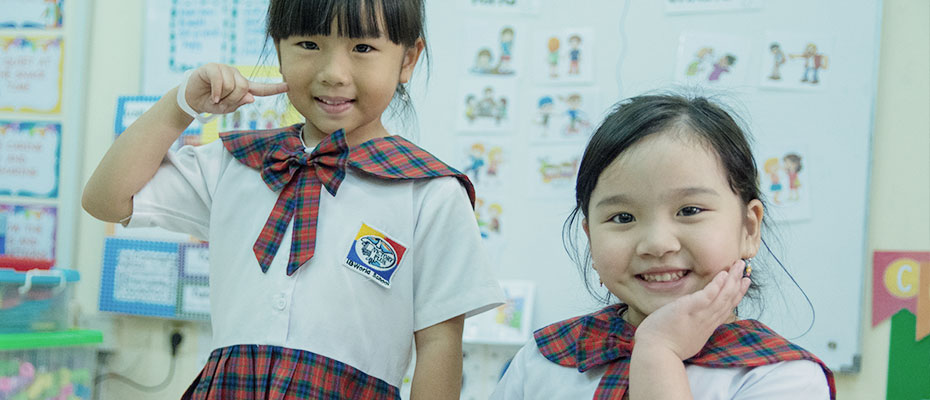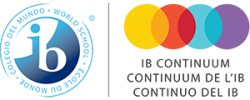Enrolling your child

Sekolah Victory Plus accepts applications for our Toddler Class (2 years old) to grade 12
- Children must be the appropriate age for each level.
- Please note that all the required documents must be sent to the admissions office prior to any testing/observation.
- The application form can be obtained (by email or in person) from the Admission Office and must be fully completed. Alternatively you can create the application form online – click here to access it.
- A deposit is required prior to taking the entrance test/observation by respective the Principals. If the child is accepted, the deposit fee will be applied as part of the submission fee and if the child is not accepted the deposit fee will be returned.
- Before applying, parents should read and understand all the policies and requirements which are stated on the form, and be willing to abide by them.
- The student applicant will be tested, interviewed and observed. The written test can be done at anytime. However, the interview and observation with the principals is by appointment only. Following the evaluation of the tests and the interview, the applicant’s family will be notified by the Admission Office by phone, SMS or e-mail regarding the status of the application, that is accepted, waiting listed, requires a re-test or not accepted.
Our admission staff are always ready to make you feel welcome.
Early Childhood Education (ECE)
We have open enrollment which means your child can join our school at any time.. Your child may register to the respective level when he/she reaches the corresponding eligible age by 31st October in the respective year.
|
Level |
by 31st October of the current school academic year, the child should have turned : |
|
The Toddler class |
2 years old |
|
Nursery |
3 years old |
|
Early Years 1 |
4 years old |
|
Early Years 2 |
5 years old |
Prospectus
We are an International Baccalaureate World School (Click here to see our High School Profile); one of a small number to offer the three IB programmes from the age of 3 to 18 years old as well as a dynamic program for students from the age of 6 months. The IB is a gold standard for education, built on fifty years of pedagogical research and development to prepare students for the challenges and opportunities of the modern world.
Our Leadership Team
Our whole team of experienced and well-trained professionals is dedicated to working closely with students and parents to create an environment in which learning can thrive. The teams experience of delivering the three IB programmes is strong. It is deeply attuned to the principles and aspirations of the United Nations as well as recognising the local context, Indonesia, in which the school operates. The IB framework grants the flexibility to evolve and adapt our own teaching styles as we grow. We are committed to continually developing our own team and we participate in an extensive programme of professional development. This is accessed through the International Baccalaureate Organisation (IBO) and other similar organisations. We are always responsive to new developments in teaching and education, such as those of Carol Dweck or John Hattie. Our approach is informed by best practice whether from neuroscience, positive psychology or from our own action research. We believe teaching is a deliberately engineered act and that effective learning environments share key features. These include strategies to engage students, to develop them into independent learners and help them develop outstanding habits of mind; this informs our entire approach.
What We Teach
We like to teach students to think for themselves: we encourage them to analyse, synthesise, create, empathise, collaborate, interpret, research, defend alternative perspectives and determine what they know and don’t know. We teach our students to work autonomously and also in groups while our teachers guide, facilitate, challenge and support. Classes are small and individual support is always available.The International Baccalaureate (IB) – the Primary Years Programme (PYP), Middle Years Programme (MYP) and Diploma Programme (DP) – matches the demands of our students and parents. It allows for a broad curriculum. Every student has two languages and can have a third if they wish. Every child studies maths, English and sciences. It develops a well rounded academic portfolio from the PYP right through to the DP. The IB places front and centre skills such as collaboration, cultural awareness, use of language, digital literacy, problem-solving, and adaptability. It addresses these either through the academic curriculum or via extracurricular activities, and community, action and service. The Learner Profile provides for the development of character, capability and responsibility. All these elements are integrated into the IB so that the whole curriculum pulls together and produces confident learners prepared for life after school. The IB is internationally-minded and helps develop global citizens able to make an impact on the world around them. It is eagerly accepted by Indonesian universities and those in over 100 countries around the world. No matter what or where you move on to after SVP, your children will be prepared.
How We Teach
The SVP approach to education can be drawn together in two primary strands: individual attention and independence as a learner. These are a culmination of our understanding of the IB, our experienced faculty, the research we undertake and our historical experience. Thanks to our commitment to individual attention, every SVP child, no matter their background or level, is given a balance of one-on-one teaching and mentoring, alongside their class work. Every student is supported to excel. The class sizes are small and teacher to student ratios high. We are dedicated to developing in every child independence as a learner. From the day they join us until the day they leave, we actively foster self-learning skills. We provide the groundwork for students at a formative stage, which provides them with the skills, confidence and desire to become an independent learner. As they reach the final years of school our aim is to make sure they thrive at the university of their choice.
What We Do
We challenge every child to achieve the most they can. With the IB, there are eight key subject groupings that sit within the three programmes. Teaching is driven by concepts and skills, which bring together different perspectives and subject material. Every IB teacher at SVP is a language teacher. Multilingualism, intercultural awareness and international mindedness are cornerstones of our approach to education. We recruit teachers who have subject expertise and are hugely committed to developing those teachers so that they too reach their own full potential. Our faculty members engage in the global debates driven by the IB and contribute to research initiatives designed to improve learning performance. We are developing attributes that are pivotal in an age when the way that we access knowledge or the way we learn are changing. In the past, developing self-learning involved teaching a child how to search through books in the library. Today, we teach our students to use technology to interact, learn from and gain knowledge from the world around them. The teacher is fundamental in this teaching, hands-on in this approach and is responsible for this development.
Research and Innovation
Leading research and best practice guide our academic approach. Our goal is for visible learning to take place, following the conclusions of extensive and groundbreaking research by John Hattie. Hattie emphasised the critical importance of feedback and developing independent study skills in students. We believe that intelligence and talent are not innate abilities but that through hard work and a can-do attitude, learning outcomes are improved. Carol Dweck, of Stanford University, developed the concept of the ‘growth mindset’. When we teach this to our students it has a keenly noticeable effect, helping them dig their way out of even the deepest academic holes in which they may find themselves. While our teachers lead classrooms, we employ full roundtable discussions led by the students: assessing one another’s work by using tools provided by the teacher or discussed by the class as a whole. It gives students an understanding of the competencies of one another; makes them more inquisitive and questioning when they are empowered to take control of their learning. In this classroom setting, teachers are the conductors of the class, who orchestrate the music of learning.




